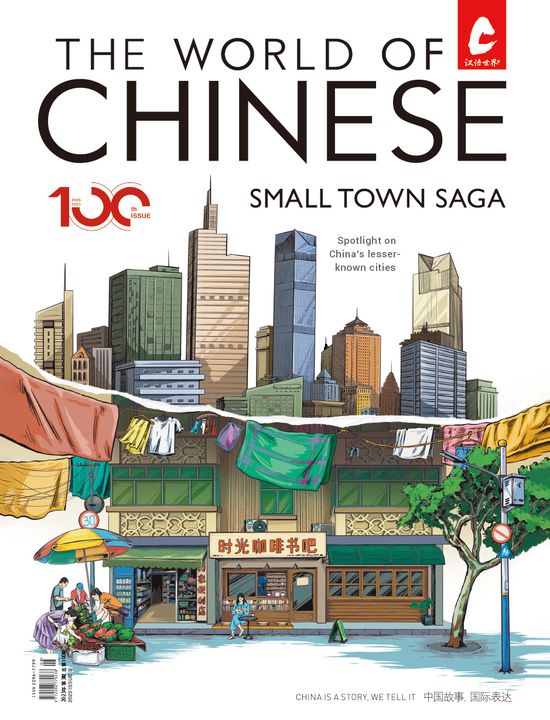Three young teachers return to their hometowns amid an education crisis in China’s countryside
Five summers ago, I stepped off a slow green train into pouring rain in a small city called Jishou, nestled between the mountains of western Hunan province. I had arrived to teach English at a teacher’s college for a few weeks after my first year of university, but I quickly realized I would learn more than I could teach.
Many of my students came from the surrounding Xiangxi Tujia and Miao Autonomous Prefecture, where close to 80 percent of the local population identifies as an ethnic minority. Until recent years, the region’s mountainous geography made it challenging to build roads connecting the area’s many remote villages with the outside world.
I met young women like Kayla, Jane, and Fay, who were part of a “five-year teacher training program” aiming to train teachers for rural elementary schools in the prefecture. Matriculating directly from middle school, the students receive five years of government-subsidized education in exchange for teaching for five years at an elementary school in a town or village in their home county.
Targeted-training programs like these, which also exist in other fields ranging from medicine to agriculture and national defense, were started in the late 1980s to address the difficulty of attracting talented workers to remote, underdeveloped regions. Though recent poverty alleviation efforts have greatly improved conditions in rural areas, teachers in rural schools still face unique challenges.

Rural students often move to towns for education, leading small schools in more remote villages to close
Many participants in the five-year program spoke especially of the difficulties working with some of China’s nearly 7 million “left-behind children,” who are being raised by grandparents and relatives while their parents migrate for work in the cities. The lack of parental guidance can impact a student’s education, and the young teachers observe many of their students needing more care and attention at school to make up for what they are missing at home. Other students display a lack of interest and motivation for studying, with some simply waiting until they finish their nine years of “compulsory education” so they can drop out of school and find work.
The paths that Kayla, Jane, and Fay chose at the young age of 14 or 15, often under the influence of family members and other adults, promised both security and limitations. For their parents, a guaranteed job as a teacher immediately promised an “iron rice bowl” for young women with few career options in a rural area. For some students, too, the program was a cost-effective way of obtaining higher education and avoiding the risk of an uncertain job market, and many find a sense of mission in supporting rural education and expanding their students’ worldviews.
Others, though, wonder whether graduating with only an associate’s degree from the five-year program will limit their career prospects, or whether they missed out on a once-in-a-lifetime opportunity to get higher education, build their character, and expand their horizons by remaining in their hometown during some of the most ambitious years of their lives. Though they must pay a fine to the government if they breach their contract, some students in the program have abandoned their studies or teaching posts. “I felt that I knew too little,” said one young teacher, who wished to remain anonymous, after leaving her job to obtain a master’s degree in a large city. “I felt that staying was not productive to my own growth or my students’ growth.”
Kayla, Jane, and Fay, like me, were young, ambitious, and searching for their place in the world. In the years since I taught in Jishou, I have returned several times to visit my students, who have now become my friends. At the cusp of their graduation, I made portraits of the three young women and asked them to write letters to their future selves. Since then, all three have started teaching at their assigned posts, and have shared further thoughts with me about their chosen path, its challenges, and how it has pushed them to grow.

Jane
I first heard about the five-year program when I was in elementary school. Like most kids, I had no plans for myself, and “the future” was something our teachers talked about in the classroom. I would always mindlessly write that my dream was to be a teacher.
This childhood innocence started to fade when I finished middle school—the first crossroads in my life—but that wasn’t enough to encourage me to continue on to high school, because I worried I wouldn’t be able to keep up with my studies and wouldn’t be able to get into a good university.
I was disappointed during my first year at the teacher’s college, because my life and studies were not how I imagined university to be. In middle school, we had to follow every instruction from our teachers, but now we had complete freedom. Knowing we’d be guaranteed a job in the end, there wasn’t much motivation to learn. I don’t lack self-discipline, but that kind of environment didn’t push me to meet the expectations I’d set for myself. Yet although I complain about the experience, I had felt nostalgic when the time came for me to graduate.
If I could choose again, would I make the same choice? I might have asked myself this question when I was still in school, but after I started working as a teacher, I stopped. What I’m focusing on now is how to teach my students well and how to improve myself.
Actually, what I am constantly afraid of is a life that I can see right to the end of, so now, I focus on doing everything I can to pursue a better self. I think this is why a lot of relatives initially persuaded me to enter the five-year program: to seek progress within stability.

I am a homeroom teacher at a middle school in a rural area. My days mostly consist of dealing with teenagers. Every day, I get up at 7 a.m. and have to check the dorms at 9 p.m. In between, I prepare lessons, correct homework, manage my class, and deal with rebellious students. It’s tiring, but I feel a lot of pride when I see my students slowly improve.
The process is not as smooth as I make it out to be. In addition to being rebellious teenagers, many of the students’ parents are absent from their lives, and the lack of guidance at home makes educating them at school especially difficult. I experience a lot of frustrations as a teacher and the best thing I can do is to guide my students into becoming honest and kind individuals. Grades are not always the most important thing.
As a homeroom teacher, what I’m most afraid of is receiving a phone call from the dorm manager in the middle of the night saying that a student isn’t feeling well. Most students are “left-behind children,” and medical facilities in a rural area are limited, so most times, it’s up to the teachers who have a car to bring the students into town for check-ups.
My middle school classmates are now also looking for jobs. Perhaps they will have more choices than I did, but everyone has their own path to take. Since I’ve chosen this path, then I have to take it in stride. Who knows: Maybe our different paths will one day lead to the same destination.

Kayla
I graduated in June of 2020. From the first to the fifth year of college, I continuously asked myself the same question: “If you had the chance, would you choose the same path again?” The answer has always been the same: no. Even though there were so many advantages to the five-year program, the next five or ten years, or even the rest of my life, will be limited by a neatly drawn circle, which is a sad thing.
I don’t consider myself to be an adventurous person, but I don’t like that kind of stable, predictable life because it wasn’t a decision I made on my own. It’s sad to think that I gave up before I got to discover my passion. The people in my hometown consider the program an “iron-rice bowl,” but the way I see it, iron rusts, and it’s dull, without vitality. However, perhaps this is just my opinion at 20 years old. Being a teacher is an honorable job; it’s just not my choice.
I think the reason why the five-year program exists is because Xiangxi is considered a remote area. The root cause of the lack of education is a lack of teachers, so now I have been assigned to work at an elementary school in a town in Huayuan county as a fifth-grade Chinese and English teacher, as well as a homeroom teacher.
When I first started teaching, it was very difficult. Part of it was getting to a new school and not being familiar with the responsibilities of a homeroom teacher. Another part is that the kids’ educational environment is very tough. Out of the 49 students in my class, not a single one could name a book they read outside of class, nor did they have the habit of reading.
I was shocked, and saddened; for them, the idea of a “book” is a simple one—there are only Chinese, math, and English textbooks. Everything they learn in the classroom is for the purpose of taking exams. Concepts we learned in our ivory tower at college, such as “holistic education,” seemed very distant. When I talk to my friends, I often say my work is like a bag of sesame seeds, such that you even have to separate the black and white seeds, on top of being burdened by all kinds of formalities.

I don’t yet have a full understanding of the word “education.” When we first chose the five-year program, it meant that in five years, we would traverse our hometowns and give knowledge back to every child and every family. I don’t know if I can reach this level yet; I don’t know if I want to contribute my life’s worth in this way. I often see classmates who adapted quickly to their new lives after graduation, but I have been very conflicted. I often wonder if these conflicted feelings will gradually fade away as my days get busier, or if I should embrace the conflict and choose a new path, and for once make a decision for myself.
I don’t know what the future looks like, but I hope it will contain endless possibilities. Compared to a life that is stationary, I would prefer to carry the baggage of my past, to regain my courage, and to choose again.

Fay
My scores in the high school entrance exam were very good, and I could have gone to the best high school in the city. My aunt and uncle, who are both teachers, suggested I go to the teacher’s college instead. These days, a lot of graduates from four-year universities have a hard time finding a job, but graduates from the teacher’s college have a gauranteed job. After five years of teaching in a rural school, you can also move to the city to teach.
I also wanted to lessen the burden on my parents: The program not only waives tuition, but provides a living stipend every semester. Still, I had wanted to go to high school in order to go to university and expand my horizons. I envied the classmates and friends whom I saw attending high school and working hard for their dreams, while I stayed behind. But what’s done is done. Since I chose this path, I have to follow it with determination and look toward the future.
We had a lot of freedom at the teacher’s college. Compared to high school, there was minimal pressure to study. Every semester I had around 10 courses, including art, music, piano, calligraphy, and dance, and courses on how to teach. The goal was for us to become well-rounded teachers. Since rural teachers are in short supply, we often have to teach multiple subjects. I was active in extracurricular activities and became a class representative. I often told myself I had to build a good foundation of knowledge and strengthen my practical skills. That way, I would not have any regrets in my youth.
After graduation, I was assigned to a nine-year elementary and middle school in the city. The school is a relatively large one, with about 400 students and 60 teachers. However, our school has a satellite elementary school in a remote village with only one teacher teaching all the subjects for nine students in kindergarten, first grade, and second grade. He has dedicated 19 years to rural education, and his story is worthy of respect.

During my first class, I told my students to write down their dreams and their goals for the semester. A lot of students said they had no dreams or goals, which surprised and saddened me. I understand the reason why they feel so lost, so I vowed that I would work to expand my students’ horizons, inspire them to have dreams, and help them reach their potential so that every child can be full of hope for their future, and shine in their own way.
After I started working, I realized many job-seekers were trying very hard to enter the public school system. Only a dozen out of perhaps a hundred people succeed. A lot of college graduates say they envy us, and it made me realize I made a pretty good choice. I don’t have to face fierce competition; I have a stable salary, my family is close by, and I can travel during the school holidays.
I’ve officially been working for a year and a half now. Progress in rural areas is slow, so I have to work even harder to improve myself and my teaching skills. My goal is to become a teacher with a strong professional foundation, who teaches with humor and wit, and is beloved by her students.
Portraits by Cindy Liu (刘紫东), and provided courtesy of Jane, Kayla, and Fay
School of Life is a story from our issue, “Rural Rising.” To read the entire issue, become a subscriber and receive the full magazine. Alternatively, you can purchase the digital version from the App Store.













